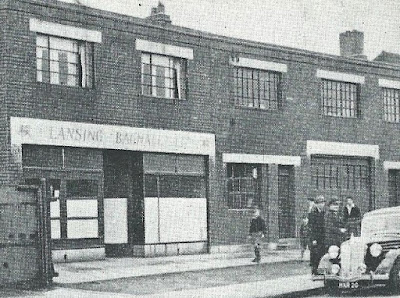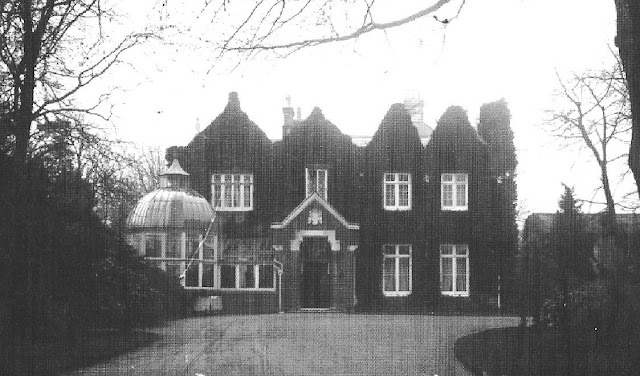The Salvation Army riots
A major event that occurred in the history of Basingstoke
was when the Salvation Army came to Basingstoke and tried to curb the alcoholic
ways of the locals. Here is the story………………
It seems a rather risky thing to do. A town with a
population of just over 6,000 which housed in the region of 50 pubs and three
breweries, and an organisation comes in to preach against the evils of alcohol,
but that is exactly what happened in December 1880. The founder of the
Salvation Army, General Booth, discovered that Basingstoke had a reputation for
drunkenness and sent a team of 25 women and officers to the town. Perhaps not
surprisingly the breweries did not take to it very kindly and strongly opposed
them, especially the John May’s brewery which was in Brook Street, just a few
yards from the Salvation Army’s base in the Old Silk Mill.
 |
| The damaged Basingstoke Gazette office |
With the backing of the churches, town leaders and John Bird
the founder of the Hants & Berks Gazette (now the Basingstoke
Gazette), the Salvation Army grew bolder and held open-air meetings and
services telling of the dangers of alcohol. This caused ill feeling, and
skirmishes ensued until, in December of 1880, violence broke out with
drunkenness a major factor. Stories of people being attacked, clubbed and
ducked in the Basingstoke Canal shocked the local population. The timely
arrival of the police saved Salvationist Captain Jordan being attacked and
thrown into the River Loddon at the bottom of Wote Street which, at that time,
was several feet lower than the street.
 |
| General Booth in Winton Square, Basingstoke |
The diary of George Woodman recorded
that on the morning of Sunday 20th March 1881 a mob of 200 people,
armed with sticks, gathered in the Market Square in order to attack the
Salvation Army procession. In a short while the numbers increased to 1,000 whilst
those supporting the Salvation Army gathered at the head to protect them. These
supporters were verbally attacked and pushed and windows were broken in Church
Street. In the afternoon a drunken mob, who became known as The Massaganians,
who modelled themselves on a London group known for objecting to the Temperance
movement, gathered again and broke the ranks of the Salvation Army forcing them
to collect in Church Square where they then proceeded to attack them with
sticks and kicks. A number of broken bones and injuries followed whilst the
police and the Mayor, W. H. Blatch, who was himself a brewer, stood aside and
watched the attack. Several local supporters were injured including the Rev
Barron of the Congregational Church, now the URC.
 |
| Mr Soper's house |
The head of Basingstoke police, Superintendent Hibberd, made
an application to the mayor for the recruitment of special constables and eventually
on Sunday 27th March one hundred of the local people were inaugurated
into the force. The same day the Salvation Armys’ cavalcade was surrounded by
constables as they gathered at the Silk Mill where the mob numbers had risen to
3,000. Later, as the Salvationists returned to the Silk Mill, the mob followed
harassing them by singing obscene songs and generally being noisy and
obstructive. Some of the special constables dropped out in fear of the mob. The
Riot Act was read at the Town Hall and the Royal Horse Artillery were called in
to clear the streets, some on foot and others on horseback.
The rioting became public knowledge throughout the country which
raised questions in the House of Commons and a London newspaper reported that
Basingstoke “appears to be inhabited chiefly by a race of barbarians”.
On 30th August 1881 twenty people appeared before
magistrates on charges of assault and obstruction and a group of Massaganians
assembled causing disruption and threating one of the magistrates. Ten of the
rioters were jailed for fourteen days in Winchester prison after which,
returning to Basingstoke, they received a heroes welcome with transport provided
in a liveried carriage, outriders dressed in scarlet and a band playing Hail
the Conquering Heroes. The Corn Exchange building was booked for a banquet
held to welcome the ‘heroes’ return, and the local brewers donated six barrels
of beer named the Massaganians Slingo.
The
skirmishes did not cease as, buoyed up by the public support, the Massaganians
won the November 1st local municipal elections. The celebrations from this
success deteriorated into more riots and windows were smashed in the Hants
& Berks Gazette office, the Congregational parsonage, the Salvation
Armys’ home at the Silk Mill and Mr. Sopers’ house in Vyne Road the home of a
leader of the Temperance movement where every window was broken and an attempt
was made to set the building alight.
 |
| William and Catherine Booth |
Disturbances
continued until 1882 when an attack was made on the Town Hall to release a
prisoner who had been arrested for
assaulting a police constable and six Salvation Army women were thrown into the
brook.
In
time the local population became tired of the conflicts, the local breweries
realised that the temperance people were not a threat and the protest dwindled.
The Salvation Army quietly went about their daily lives and General Booth
visited the town, to much acclaim, to witness the building of a new Salvation
Army hall the first for the town - and peace returned.


Comments
Post a Comment
We are always interested to hear that you enjoy the posts. Please leave a message.